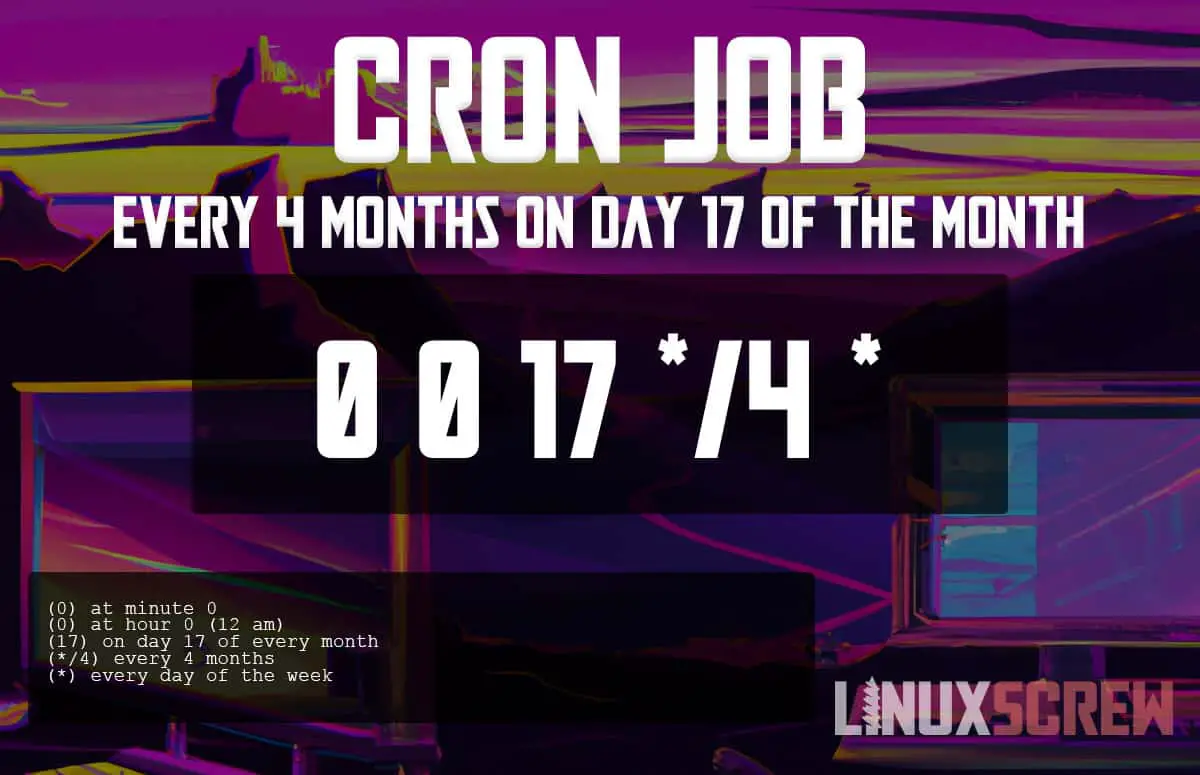This page will help you quickly and easily set up a cron job to run every 4 months on day 17 of the month.
The Cron Job/Crontab
To have your task run at this frequency, use the following cron:
0 0 17 */4 *
This cron command translates to the following (in Human-Readable format):
“Every 4 months on day 17 of the month.”
What is a Cron Job & Crontab?
A cron job is a task that is scheduled to run at a specific time or interval. Cron jobs are commonly used to automate system maintenance or administration tasks, such as running backups or sending email reports.
A crontab is a file containing commands and instructions for the cron daemon to execute.
Cron Fields
Every cron job uses five fields. Here is an explanation of what each field does in this cron, which runs “every 4 months on day 17 of the month“:
FUN FACT: Cron is one of the most powerful tools available on a Linux system – use it wisely!.
Use Cases
You might want to set up a crontab or cron job to run every 4 months on day 17 of the month for several reasons, including:
- A program that needs to be run every 4 months on the 17th day of the month
- A script that backs up data every 4 months on the 17th day of the month
- A cron job that runs a system update every 4 months on the 17th day of the month
Similar Cron Jobs
You might also want to run a crontab:
- every 3 months
- every 4 months
- every 2 months
- every 6 months
- every 5 months
- every 1 month
- every 1 month on day 9 of the month
- every 3 months on day 10 of the month
- every 5 months on day 22 of the month
FUN FACT: Cron jobs are used to schedule commands or scripts to run automatically at a specified time and date..
Wrapping Up
In this article, you learned how to set up a cron job that runs every 4 months on day 17 of the month. Please share this page with friends and colleagues if you find it useful.
If you have any questions, please don’t hesitate to comment below.
If you are looking for cron jobs that run at certain minutes, hours, days, weekdays, or months, or if you are looking for miscellaneous cron jobs, then check out our relevant sections, or visit our crontab cheat sheet for a list of hundreds of popular cron jobs.

